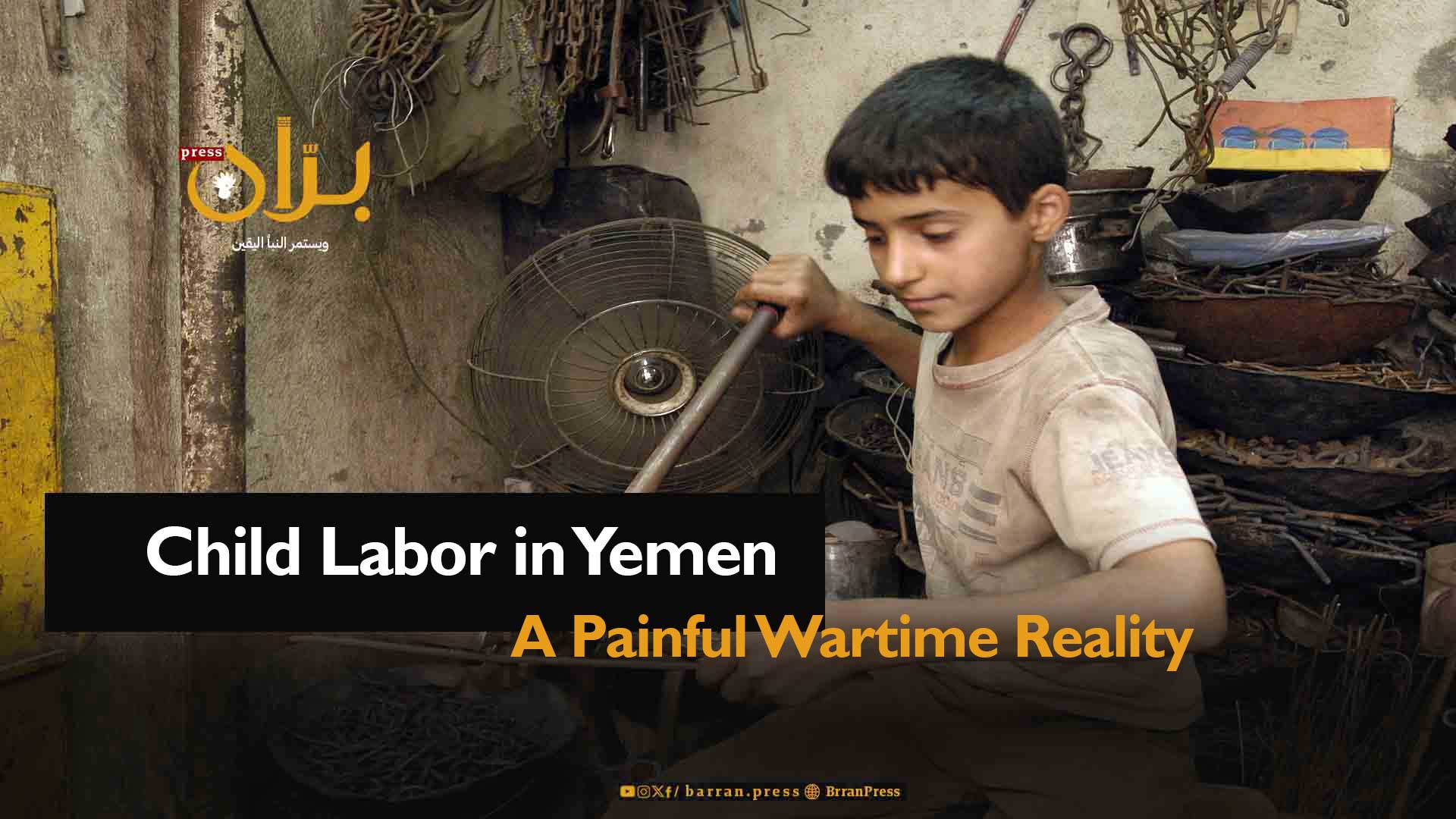


Barran Press
Today, on Wednesday, June 12th, the world observes "World Day Against Child Labour," shining a spotlight on the distressing issue of child labor in war-torn Yemen. As the country enters its tenth consecutive year of conflict, human rights reports reveal that a staggering 29% of Yemeni children are engaged in work.
The ongoing war, initiated by the internationally recognized terrorist group, the Houthis, who invaded the capital city of Sana'a in September 2024, has exacerbated the prevalence of child labor in Yemen. Harsh living conditions, economic hardships, and the loss of breadwinners or sources of livelihood within families have pushed children into the labor market instead of attending school and securing their basic needs. The war's devastating impact on education, with schools being damaged or abandoned, coupled with widespread displacement, has further contributed to the rising numbers of children involved in labor to support their families struggling with hunger and poverty.
A recent report by the United Nations Children's Fund (UNICEF) highlights the dire situation, stating that over 2.3 million children in Yemen's displaced camps lack access to essential services in health, nutrition, education, protection, water, and sanitation.
Child labor in Yemen has become an alarming consequence of the war, with limited protection from official entities and insufficient intervention from international agencies and organizations to ensure children's well-being and a decent life. Many of these child laborers endure harsh working conditions, often in unsafe environments unsuitable for their young age. Additionally, they are subjected to various forms of violations.
A cluster survey conducted by the Central Bureau of Statistics in collaboration with UNICEF in October 2023 revealed that children between the ages of 12 and 14 accounted for 29% of the child labor force in Yemen.
Tragically, children and their caregivers often resort to negative coping mechanisms, including child labor and, in some cases, recruitment into armed conflict.
In a June 2021 report by the International Labour Organization, Yemen ranked first in the Arab world for child labor, with a rate of 13.6%, followed by Sudan with 12.6% and Iraq with 4.9%.
Yemen's Child Rights Law No. 45 of 2002 prohibits the employment of children under the age of fourteen and restricts their involvement in industrial work until the age of fifteen.
Summer camps organized by the Houthis, designated as a terrorist group, have emerged as significant factors driving hundreds of children into the worst forms of child labor and exposing them to grave violations, including recruitment, murder, and lasting psychological damage.
Tawfiq Al-Hamidi, head of the SAM Organization for Rights and Liberties, expressed to Barran Press his concerns about the Houthi-run summer centers in Yemen. He stated that these centers initially intended for entertainment and summer education, have turned into tools for indoctrinating and training children and teenagers in line with the group's ideologies. Al-Hamidi emphasized three primary objectives of these centers: ideological mobilization, military training, and recruitment for combat.
Reports and data indicate a troubling increase in the number of children recruited by the Houthis through summer centers. Since the conflict began in Yemen in 2015, it is estimated that over 10,000 children have been enlisted, with many directly sent from summer centers to the battlefronts. This trend contributes to a surge in school dropout rates, depriving an entire generation of fundamental and secondary education opportunities, thereby adversely affecting the country's future.
Moreover, child soldiers endure severe psychological and social traumas that leave lasting impacts on their mental health and their ability to reintegrate into society in the future.
The World Day Against Child Labour, established by the International Labour Organization in 2002, serves as a critical reminder to acknowledge the global problem of child labor and strengthen efforts to eradicate this harmful practice.